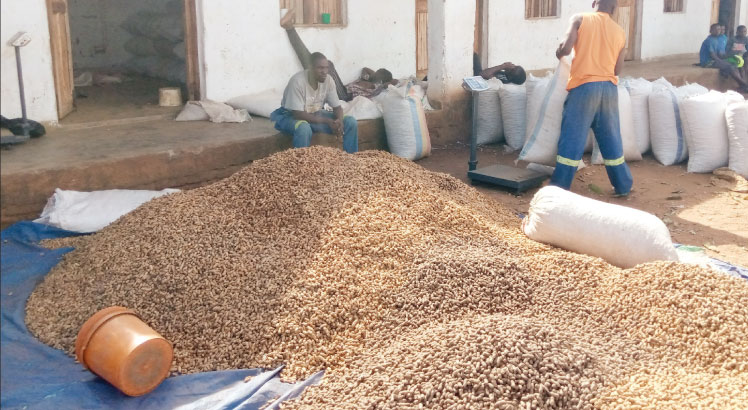Uranium Mine earns Malawi K68bn since 2009
 Paladin Energy Limited has singled out a seven day industrial action at its Kayelekera Uranium Mine in Karonga in May this year as one of the factors that has negatively affected uranium production in the 2011 financial year.
Paladin Energy Limited has singled out a seven day industrial action at its Kayelekera Uranium Mine in Karonga in May this year as one of the factors that has negatively affected uranium production in the 2011 financial year.
The Australian-based mining firm has disclosed this in its latest annual report for the financial year ending June 2012 which has also provided major highlights for the company’s other mining investment ventures across the globe.
“During the year, production was impacted by a planned plant upgrade shutdown in August 2011, unscheduled remediation work in September/October 2011 totalling two months and industrial action in May 2012,†reads the annual report signed by Paladin Africa managing director John Borshoff.
In May this year, the local workforce walked off the mine site, an industrial action that resulted into uranium production being shut down as employees demanded a salary adjustment in tandem with a 50 percent devaluation of the kwacha.
Last year, the company also temporarily shut down its processing plant to allow replenishment of necessary operational sulphuric acid inventories.
But despite such disruptions, Borshoff has said in the annual report that uranium production for the year at Malawi’s biggest mining investment venture increased by 14 percent to 2.5 million pounds.
He said the company achieved record quarterly production in June 2012 quarter of 0.7 million pounds which he said represents 88 percent of design capacity and is consistent with March 2012 quarterly production despite industrial action in May.
On cost optimisation during the financial year, Borshoff said implementation plan was approved in 2011 to target reducing corporate and marketing costs by at least 15 percent.
“Tighter controls have led to a reduction of corporate overheads, including travel costs and outsourced work. Labour costs have reduced as the high capital investment phase has largely been completed,†he said.
He also said the company has identified 14 areas with specific targeted cost saving opportunities which he said includes reagents or primarily acid, diesel and transport, among others.
On progress during the year under review, the company’s chief said they have reached a new agreement with the finished goods transporter to reduce costs, securing cheaper imported acid, cost effective direct diesel imports and cheaper mill balls now being sourced from China.
Borshoff also said sales revenue increased 37 percent from $266.8 million (K75 billion) in 2011 to $365.8 million (K102 billion) for the year ended June 2012, mainly as a result of higher sales volumes of 6.7 million pounds compared to 2011 sales volume of 4.8 million pounds.
“Uranium sales volumes are expected to fluctuate quarter-on-quarter due to the uneven timing of contractual commitments and resultant scheduling by customers. Now that production has reached design levels, sales and production volumes are expected to be comparable on an annualised basis,†he said.
Borshoff has since expressed optimism that the benefits of increased production levels and cost benefits from the cost optimisation programme will be realised in the 2013 financial year.
The report says Kayerekera Uranium Mine has since inception in 2009 earned the country $245 million (about K68 billion) in foreign reserves which the company claims has helped beef up Malawi’s low foreign reserve position as measured by months of import cover.





